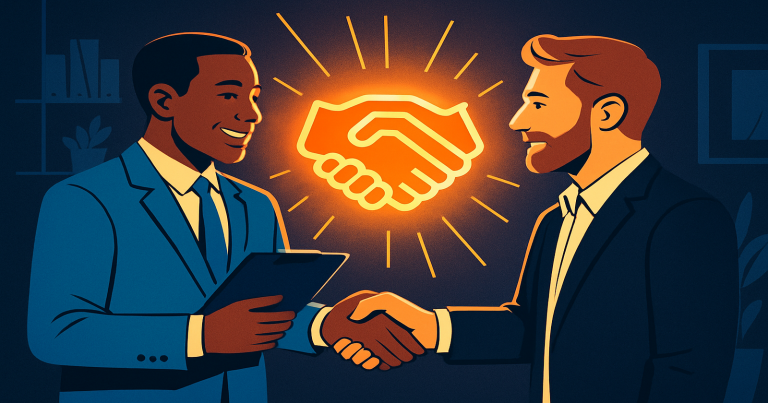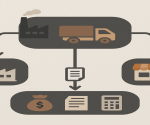The personal selling tactic is generating a lot of buzz in virtual marketing. Specifically, it helps to create recognised customer trust instead of establishing a blatant interference from the past, never giving safe refuge for long demonised aggression aimed at the unsophisticated high. A personal selling transaction increases sales, customer satisfaction, and loyalty. Advertising and email marketing campaigns feature one-way communication and are experienced on a one-off basis because once a transaction occurs, that tends to cut all ties. Thus, personal selling and two-way communication have a higher level of engagement.
What is Personal Selling?
Personal selling is an interactive and face-to-face selling between a seller and buyer, usually the first one standing as a mediator for the other to decide on their buying journey. Personal fulfilment is offering the customer what she truly wants or needs; one or both of which distinguishes personal selling from other forms. Directed by the selling process, the attempt to resolve a need, the hard one, be it new or fresh, or the soft one, is forgotten when stuffing the other with buzzing ads.
Components of Personal Selling.
In addition, components that aid in success in personal selling include:
- Two-way Communication: It involves not only talking but also listening.
- Identification of Needs: It requires searching for what a salesperson can do to make a prospect’s life easier.
- Customised Solutions: Offers should be unique solutions to the present need.
- Post-Sales Relationship: This encompasses follow-up and ensuring the company maintains customer service.
From above, personal selling is a school packed with untaught acts that could make real gems out of young novices.
Importance of Personal Selling
The most significant advantages of personal selling lie in the strength of relationships built during the sales process. Customers who engage in individual interactions with knowledgeable and trustworthy salespeople are more likely to make repeat purchases and recommend the brand to others. Personal selling goes beyond the sale and into relationship management.
This is particularly critical in B2B and service-based sectors, where decisions involve multiple stakeholders and larger investments. Here, personal selling becomes a bridge that connects business value to individual decision-makers.
Builds Trust
An open conversation becomes possible with personal selling because the salesperson stands face-to-face with the customer. The buyer feels more confident about the product and the brand because personal selling puts the buyer and seller into face-to-face contact with each other. The second means of trust-building is through listening to the customer, responding honestly, and providing accurate information. These factors of trust enter into the buyer’s decision-making process and later assist in creating lasting relationships with the customer and the firm.
Personal Touch
The personal touch given to the sale is a quality of personal selling, setting it apart from mass advertising. The salesperson could change their tone, mannerisms, or even message according to the personality and needs of the customer. This personalized approach makes the buyer feel appreciated and valued. It turns a sales pitch into a meaningful interaction and increases the odds of successful closing.
Answers Questions
Customers generally have queries or doubts prior to a purchase. Personal selling helps in directly dissolving these queries. An excellent salesperson gives a good patient listening to the queries and gives clear useful answers. This real-time assistance removes confusion and instills confidence in the product while lessening the customer’s doubt and speeding up the closing.
Increases Sales
When performed well, personal selling results in higher sales. The salesperson, on the one hand, is able to show the product advantages according to customer’s very own needs and, on the other hand, he/she is able to upsell or cross-sell complementary products. Dealing with objections, urging for immediate action, all these instill higher chances of conversion. Hence the effect is an extremely powerful selling methodology.
Creates Loyalty
Future purchases are often made by customers who have been given personal attention. They remember how the salesperson treated them and how their issues were resolved. Across that, personal selling creates emotional bonds that change one-time customers to loyal ones. That loyalty is converted into repeat business and contributes immensely to long-term brand growth.
Instant Feedback
Personal selling gives immediate feedback to the salesperson from the customers. They are able to observe the customers’ facial expressions, tone, and body to understand their level of interest or hesitation. This instantaneous feedback enables the salespersons to change their pitch in the very moment. This would also prove useful for the company, providing insights into customer preferences, product weaknesses, or market trends.
Why Does Personal Selling Drive Better Results Than Other Methods?
| Sales Approach | Customer Engagement | Conversion Rate | Feedback Collection |
| Advertising | Low | Low | None |
| Email Marketing | Moderate | Moderate | Limited |
| Personal Selling | High | High | Instant |
Unlike static marketing tools, personal selling lets the salesperson handle customer objections in real time. If the customer is unsure, the salesperson can instantly clarify product features, warranties, and benefits, which helps close sales faster and more confidently.

Personal Selling Examples Across Industries
The importance of personal selling is best illustrated through real-life industry applications. It is critical in sectors where trust and tailored advice are essential.
- Real Estate: Buyers usually make one of the most significant purchases of their lives here. Real estate agents use personal selling to understand client preferences, explain loan options, and offer home tours. Trust is a deal-maker.
- The pharmaceutical industry: The sales reps explain how medicines work to the doctors, supported by research evidence as well as providing samples. They enable the doctors to make informed decisions that go on to affect the health of patients.
- Luxury retail: Brands like Gucci or Rolex hardly practice mass advertising; rather, they train in-store experts to provide one-on-one shopping experiences filled with exclusivity and care.
- B2B Software Sales: Complex enterprise tools need a deep understanding. Salespeople explain features, arrange demos, and conduct follow-ups over months, making it one of the most intense personal selling formats.
These examples prove that personal selling is relevant and necessary for certain products and customers.
Impact of Personal Selling on Sales Performance
Personal selling impacts every sales funnel stage—from awareness and consideration to purchase and retention. A good salesperson can move a customer through these stages faster than a generic ad campaign. They also provide immediate feedback that helps refine the product or pitch.
- Conversion Rate: Personal selling boosts conversion because the salesperson actively overcomes doubts.
- Customer Lifetime Value (CLTV): Customers who feel valued by a salesperson tend to stay longer and spend more over time.
- Brand Loyalty: Salespeople are brand ambassadors. When they perform well, the brand’s credibility improves.
KPIs to Measure the Power of Personal Selling
| KPI | Personal Selling Effect |
| Conversion Rate | Up to 60% higher than passive methods |
| Repeat Business | 40% more likely when customers know the salesperson |
| Sales Cycle Duration | Shortened due to real-time objection handling |
| Customer Satisfaction Score | Higher due to personalised interaction |
Companies that leverage personal selling effectively often see these metrics outperform their digital-only peers.
Future of Personal Selling in a Digital Age
Personal selling is evolving. Salespeople today use CRM systems, video calls, chatbots, and AI tools to collect data, manage leads, and improve personalisation. This digital transformation has made personal selling more efficient, scalable, and data-driven. The key is omnichannel integration. For example, a customer may see a digital ad, schedule a video meeting, and visit a showroom. At each stage, the salesperson is there to provide personal guidance.
The Importance of Personal Selling FAQs
Why would you say personal selling is better than classical advertising?
Since real-time communication occurs during personal selling, deceased salespeople can answer questions and personalise the pitch somewhat in real-time, thus improving the chance of success.
How does personal selling help in attaining better conversion rates?
This method leads to immediate trust-building with the engaged customer, getting feedback on possible needs, thus enhancing the possibility of closing the sale.
Which are the industries where personal selling is extremely crucial?
Industries like real estate, pharma, B2B software, and luxury retail rely heavily on personal selling because of the product’s complexity and the value of their products.
Do you think digital tools can improve personal selling?
Yes. CRM platforms, AI-based analytics, and video conferencing make personal selling effective from a data-driven and scalable perspective.
Why are personal selling aspects important in brand loyalty?
The ongoing relationship and trust that builds between the customer and the salesperson create emotional loyalty to the brand.


